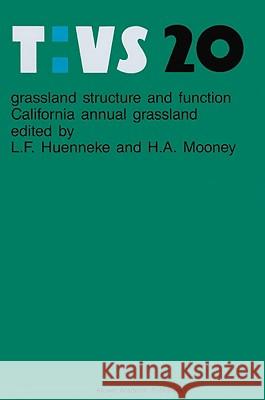Grassland Structure and Function: California Annual Grassland » książka
Grassland Structure and Function: California Annual Grassland
ISBN-13: 9789061936596 / Angielski / Twarda / 1989 / 220 str.
The chapters in this volume are based on a opportumtles for studying the links between symposium, "California grasslands: structure abiotic and biotic components. and productivity," supported by the National The contributions in this volume illustrate Science Foundation. The primary objective of the links between population-level processes this symposium was to integrate the current and system-level phenomena in a well-studied understanding of controls on ecosystem struc community. Unfortunately, some areas of cur ture and function with the approaches of popu rent research (e.g., nutrient cycling) are under lation biology. The annual grasslands are represented in this volume. For other topics eminently suitable for experimental and manip (particularly the role of invertebrate con sumers), the lack of data from the annual grass ulative studies of ecosystem processes. The short lives and small stature of the component land brought a broader grassland perspective. plant species make experimental work far more Together, however, the contributions illustrate practical than in forests or even in perennial the importance of different ecological ap dominated prairies. The system's small-scale proaches in studying the controls on structure patchiness, and the obvious importance of and function of a complex system. the region's mediterranean climate in the life cycle of the annual vegetation, afford many L.F. Huenneke and H.A. Mooney Huenneke, L.F. and Mooney, H. (eds) Grassland Structure and Function: California Annual Grassland."











